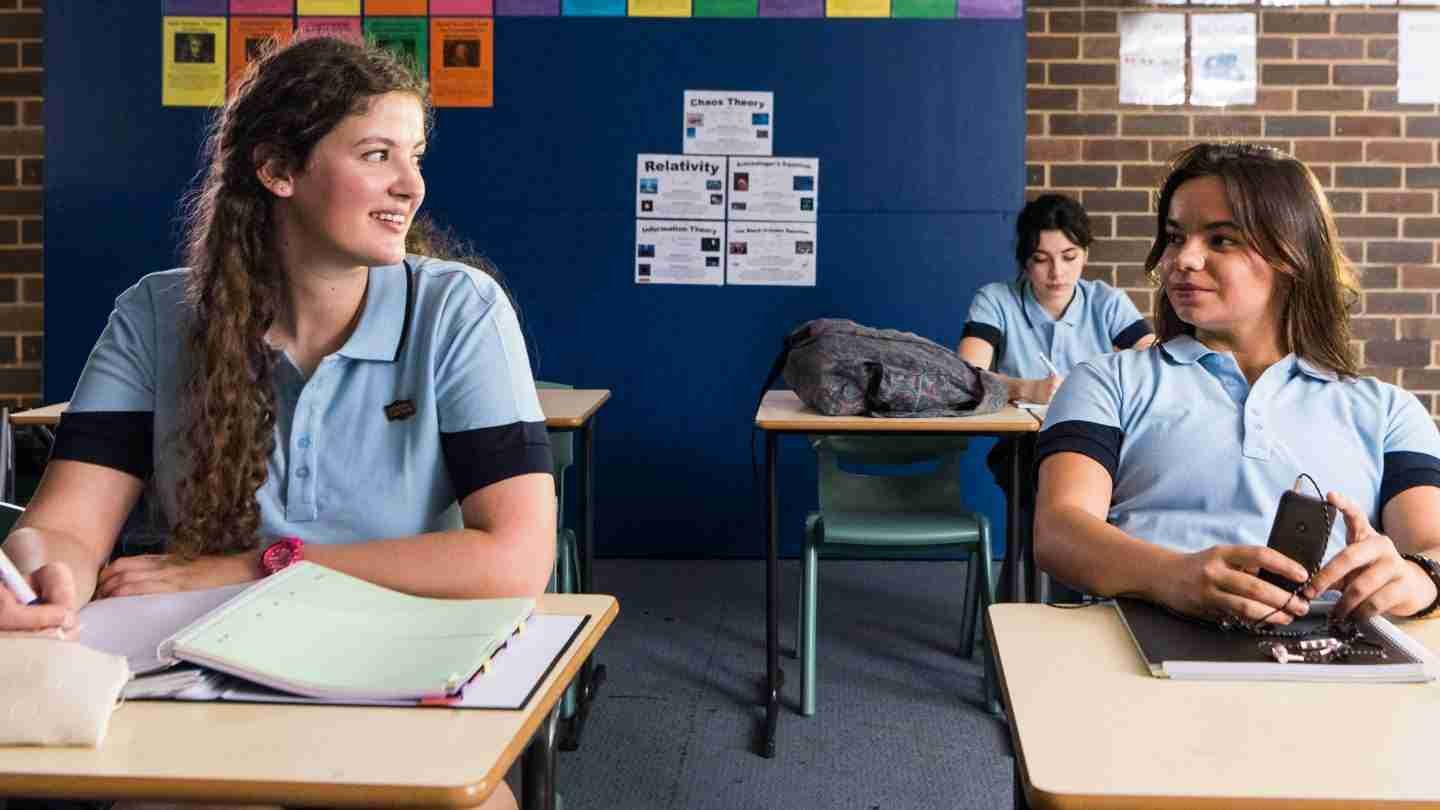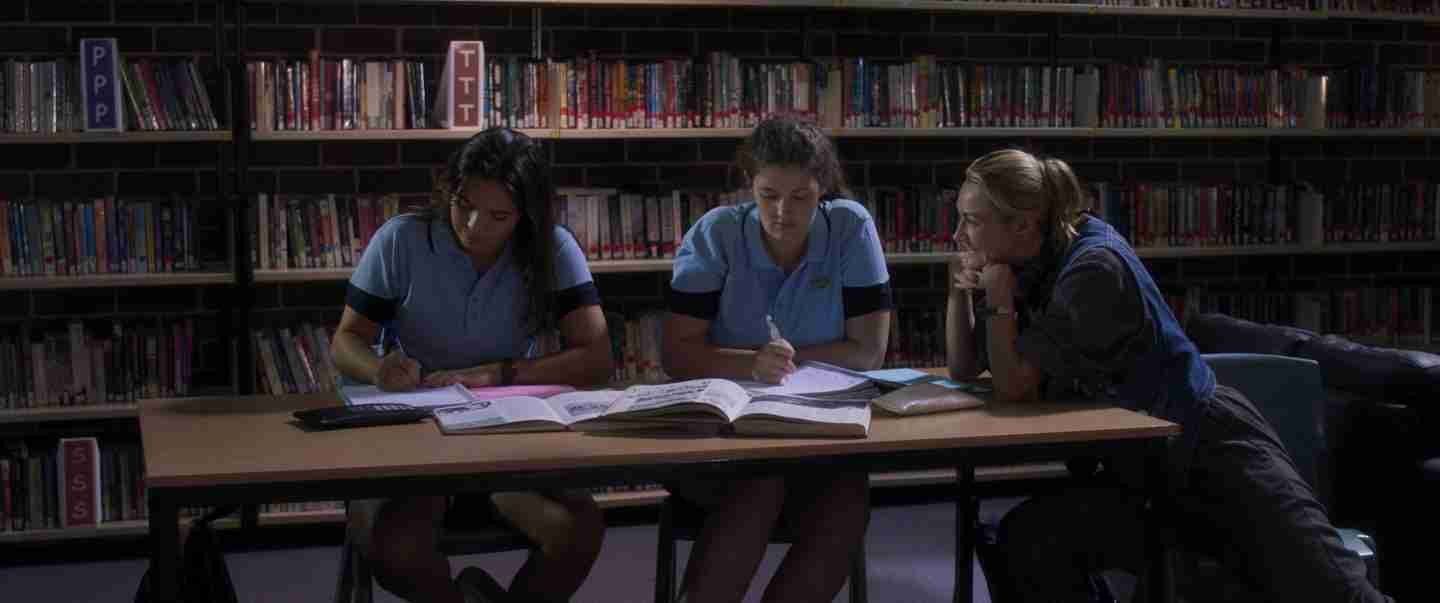
Ellie & Abbie (and Ellie’s Dead Aunt) (directed by Monica Zanetti) is a new Australian high school rom-com. The film is set around the main character, Ellie, (played by Sophie Hawkhaw) who desperately wants to ask her crush, Abbie, (played by Zoe Terakes) to the Year 12 Formal Dance (aka the Prom).
Ellie is a diligent student, who gives off big young Drew Barrymore vibes. She has a bedroom covered in inspirational quotes. And, she teeters between confident and awkward, which is to be expected of a teenage protagonist. As we join her on the journey of confronting her crush, we meet her dead Aunt Tara (played by Julia Billington). Aunt Tara was a lesbian 80’s activist, who shows up abruptly in Ellie’s life as the fairy godmother role to help her win over her crush. So, it’s all of us together; Ellie, Aunt Tara, and me or you (when you watch it!) rooting for young queer love for 82 minutes and it’s glorious.
The film not only follows Ellie’s encounters with her crush, Abbie. But also with the inclusion of Ellie’s Aunt Tara, the film captures the spirit of the LGBTQ+ community in Australia by honouring its history. This, combined with the emotional complexities of Ellie’s family unit and the ripple effects of Tara’s death. It makes Ellie & Abbie (and Ellie’s Dead Aunt) not just a high school movie. But, a film that is something more.

To dig a little deeper into this aspect of the film. Whilst the film plays into the high school rom-com movie genre (or as I like to call it The Prom-Com). With its awkward interpersonal encounters, three-act structure, prom iconography, and parental fallouts. The film also works against typical conventions of the genre too. Firstly, as discussed above, the film holds space for many themes to intertwine. Which creates a deeper emotional depth to the film and therefore a bigger emotional reaction in the viewer. Secondly, the film is comedic; finally, the jokes are good! The fourth wall is broken a few times, which invites the viewer in, and the punchlines don’t feel rushed or awkward. Thirdly, the very queerness of the film combats the overbearing heteronormativity normally seen in the prom-com genre.
Ultimately, the film indulges in the romanticised renderings of teenage life through the popularised high school rom-com narrative without the rest of its content becoming super far-fetched or cheesy. And I think this is down to the inclusion of the character of Aunt Tara, for reasons already mentioned. This familiar narrative trajectory was also comfy to experience and cushioned the harder, emotional parts of Ellie’s story.
The final thing I would like to note about Ellie & Abbie (and Ellie’s Dead Aunt) is the two main characters. It was refreshing to watch Zoe Terakes play Abbie, the more masculine one of the pair, as soft and playful. Which confronts many stereotypes of the masculine queer AFAB (assigned female at birth) character. It was equally exciting to see the power dynamics between Ellie and Abbie be evenly balanced as well. The film seemed to work hard to not succumb to popular LGBTQ+ characterisations. And, both of the character’s queerness did not feel forced.
To summarise Ellie & Abbie (and Ellie’s Dead Aunt) is a great film. It is fun, heartfelt, and sweet. And honestly, I think it is the prom-com we’ve been waiting for.
Intrigued? Take a look at the trailer.
If you watch Ellie & Abbie (and Ellie’s Dead Aunt) and are left wanting more, you can check out some of our other film reviews like Upon Her Lips and Ammonite.
Team Nonchalant x

